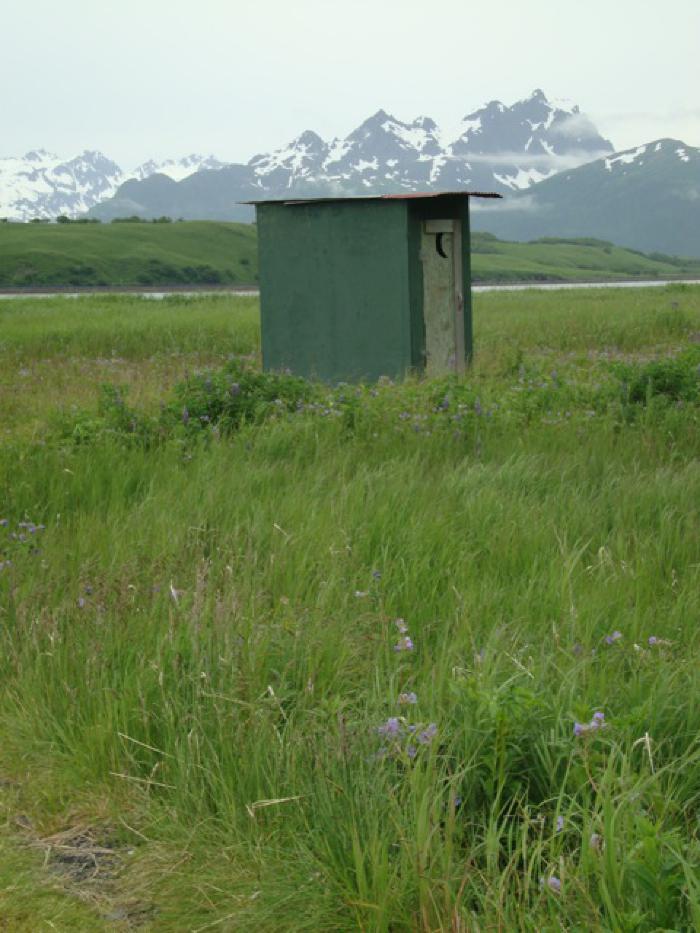Outhouse — Nuus’hniik, Anarwik

In prehistoric times, going to the bathroom was a less private matter than it is today. Alutiiq families kept large wooden tubs near the doors of their houses to collect urine. Valued for its cleansing properties, Alutiiq women used urine to process hides. The ammonia in the urine broke down fat, leaving animal skins grease-free and ready for sewing.
Western colonists introduced outhouses. Although they eventually became popular, these small structures were not always used for their intended purpose. A story from Afognak Island tells how a missionary gave an Alutiiq man lumber to build an outhouse. Instead of using the new structure for its unsanitary intended purpose, the man put it to better use smoking fish. Similarly, when missionaries distributed chamber pots to Alutiiq families in the 1890s, many chose to use these large, valuable ceramic containers in the kitchen, not the bedroom.
In Kodiak communities today, there are two common words for outhouse. Some people use the term adopted from Russian, nuus’hniik, which means “necessary place,” while others use the Alutiiq word anarwik, which means “place to defecate.” These terms are not just applied to outhouses, however. With the introduction of indoor plumbing, both words have come to mean bathroom and toilet.
